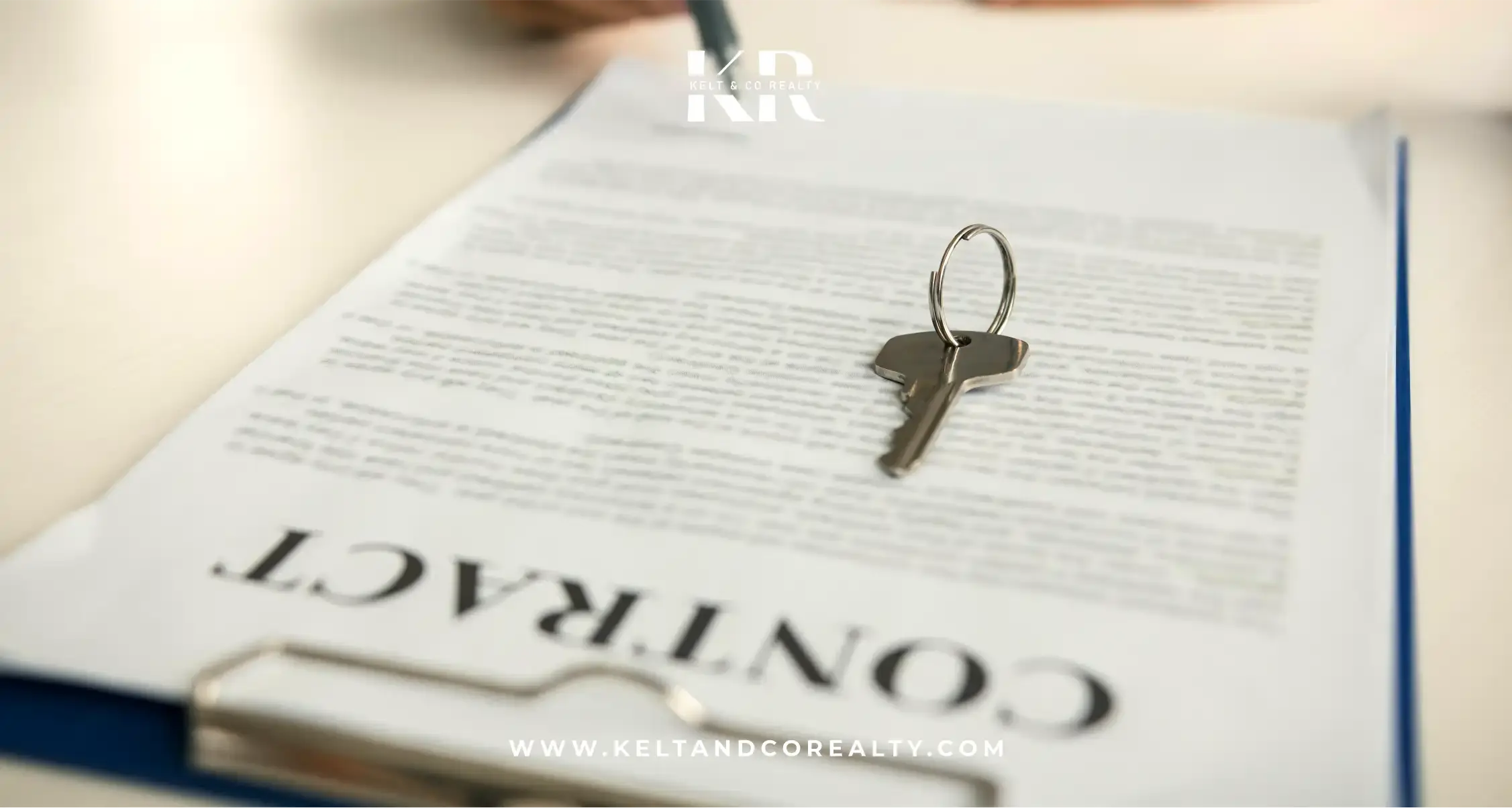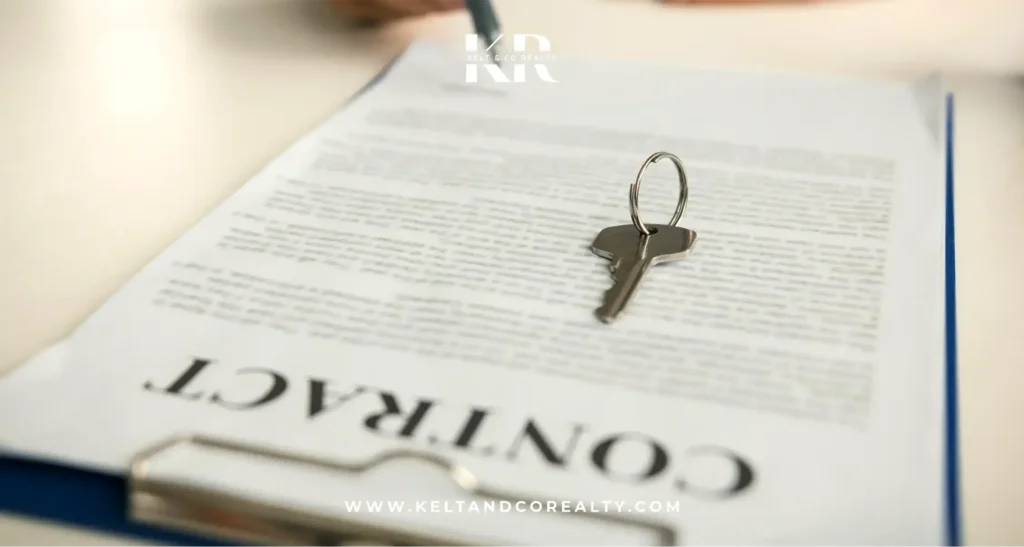
Imagine you’re moving to Dubai and thinking about renting an apartment, but you are unsure how to begin with the rental journey. Here’s a simple breakdown. Several steps are involved in renting a home or office in Dubai—a tenancy contract is one of them. Whether you are a newcomer to the city or an investor managing rental properties, it is crucial to understand how tenancy contracts function in Dubai. It is a mutual agreement between the tenant and the landlord.
What is a Tenancy Contract in Dubai?
A tenancy contract, sometimes called a rental contract, is a formal, legal agreement between the tenant and the landlord that defines the conditions of renting a property. Whether you are renting residential or commercial property, this agreement is a critical requirement.
Legal Definition:
This contract is governed by Law No. 26 of 2007. It includes details about:
- Full names of both the tenant and the landlord
- Type, size and location of property
- Annual rent amount, payment schedule, and deposit terms
- Lease Duration
- Roles and responsibilities of both parties
Objective & Obligations:
Here are the primary objectives of the tenancy contract.
- It protects the rights of the tenants and the landlord.
- It defines terms related to rent, maintenance and renewal.
- It helps to minimize conflicts related to eviction, rent increase and misuse of property.
By signing, both parties agree to adhere to its conditions. Upon breach, either party can take legal steps.
Role of Dubai Land Department:
Dubai Land Department (DLD) is responsible for regulating rental agreements. All rental contracts must be registered with the Ejari, which is the tenancy contract registration platform, operated under the Dubai Land Department (DLD). This registration is necessary for activating DEWA services, addressing tenant-landlord conflicts, and applying for a family visa.
Types of Rental Contracts in Dubai
It is essential to learn about various types of rental contracts before renting properties in Dubai. Each contract is designed for a specific use. Below are the main types of tenancy contracts:
| Contract Type | Duration | Description | Ejari Registration | Documents Required |
| Residential Tenancy Contract | Usually 1-year | Agreement for villas, apartments, and flats | Mandatory | Emirates ID, passport copy, signed lease agreement, and proof of property ownership |
| Commercial Tenancy Contract | 2-5 years | Leasing office, shops, and warehouses | Mandatory | Emirates ID, passport of the license holder, signed rental agreement, and trade license |
| Short-term & 6 months Tenancy Contracts | Less than a year (monthly or up to 6 months) | Temporary stays, business travelers, and tourists | Not always mandatory | Copy of passport and visa, security deposit and rent receipt |
Dubai Rental Agreement Formats and Templates
Using the correct rental agreement format is essential before renting. The Dubai Land Department (DLD) and Real Estate Regulatory Agency (RERA) issue these documents to ensure legal compliance and transparency.
- Standard Rental Agreement Formats: The standard rental agreement is also referred to as the Unified Tenancy Contract. It is mandatory for Ejari registrations and includes compulsory fields like:
- Tenant and landlord information (name and contact)
- Property size and details
- Monthly/annual rent and payment conditions
- Duration of contract and renewal options
- Maintenance duties and legal provisions
- Customizable Templates: Word, PDF and Online: These templates are widely preferred by landlords or agents as they allow easy customization before registration to Ejari. Double-check the customizable tenancy contract to ensure it aligns with the Dubai Land Department (DLD) standards. These formats are usually available in Microsoft Word (.doc), PDF and online tenancy contract creation tools.
- Unified Tenancy Contract: The Real Estate Regulatory Agency (RERA) introduced the Unified Tenancy Contract. It is a government-approved document that blocks non-compliant terms. It protects both parties by promoting clarity, aligning with rental legal obligations, and reducing conflicts.
How to Apply for a Tenancy Contract
There is a simple and streamlined process to apply for a tenancy contract.
Step-by-Step Offline Process:
- Choose a property
- Discuss conditions like rent, payment durations and others
- Obtain the Unified Tenancy Contract
- Fill out and sign the contract
- Register it with Ejari
Step-by-Step Online Process:
- Go to the Ejari portal or the Dubai REST app
- Log in or create an account
- Enter contract details and upload the necessary documents
- Submit application
- Pay the Ejari fee
- Get an Ejari certificate
You can do it through RERA-certified real estate agents or brokers, a landlord, property management companies and online via Ejari and Dubai REST app.
Documents Needed for Tenancy Contract
Here’s the list of documents required for a new tenancy contract:
- For Tenants:
- Photocopy of the tenant’s passport
- Tenant’s Emirates ID
- Copy of residence visa
- Emirate IDs of family members (for family visa support)
- For Landlord:
- Photocopy of property ownership certificate
- Copy of passport or Emirates ID
- From Both:
- Signed tenancy contract
- DEWA account number
- Valid trade license (for commercial leases)
Here’s the list of documents required for renewal of the contract:
- Copy of the last tenancy contract
- Updated identification documents (Emirate ID or passport)
- Renewal form issued by Ejari or an agent
- Recent DEWA bill
- Previous Ejari certificate
What is Ejari, and How to Register Your Tenancy Contract with Ejari
Ejari registration is a regulatory requirement for renting a property in Dubai. Ejari is an Arabic word which means “my rent”. Dubai Land Department (DLD) created the Ejari system to regulate rental contracts across the emirate. It promotes transparency by ensuring all rental contracts are enforceable under Dubai law. You will get an Ejari certificate after registration, which is required for the DEWA setup, sponsoring a family in the UAE, and resolving rental conflicts through RERA or DLD.
Documents Required for Ejari Registration:
- Signed tenancy contract
- Tenant’s identification documents, like Emirates ID or passport
- Proof of property ownership
- Registered DEWA account number
- Trade license for commercial leases
Online Process for Ejari Registration:
It can be done via the Dubai REST app or the Ejari portal.
- Download the app or visit the Ejari website
- Sign in or create a new account
- Upload mandatory documents
- Pay the fee (AED 220-250)
- Receive certificate
Offline Process for Ejari Registration:
- Go to the RERA-approved Ejari typing center
- Submit the required documents
- Staff at the typing center will fill out the application and process it
- Pay the fee
- Receive the Ejari certificate
Guide to Check, Verify and Download Dubai Tenancy Contracts
After registration, it is essential to verify and obtain tenancy documents to use them for legal purposes.
How to Check and Verify Contracts:
Tenancy Contracts:
Via Dubai REST app:
- Log in to the app
- Go to “My Properties” or “Rental Contracts”
- Enter details like a contract number or Emirates ID
- View details and verification status
Ejari Certificate:
Via Dubai REST app:
- Log in to the app
- Navigate to Ejari services
- Input contract number, Emirates ID, or barcode
- Details like location, rental value, and contract status will be shown
How to Download Contracts:
- Access contract details via the REST app and tap on “Download PDF” to download the contract
- You can also request a digital copy of the contract from typing centers if you applied offline.
- For the Ejari certificate, visit the DLD website and navigate to “Download Ejari Certificate”. Access the certificate by putting in the details and then tap on “Download” to save it.
When and How to Renew a Tenancy Contract:
It is necessary to renew tenancy contracts to use commercial and residential properties uninterruptedly. These contracts are typically valid for 12 months and must be renewed at least 90 days before the end date. If both the landlord and tenant fail to provide notice, the contract renews automatically on the same conditions unless revised by both parties.
How to Renew:
You can renew it either online or offline.
Online:
- Visit the Dubai REST app or the Ejari system
- Navigate to “Renew tenancy contract”
- Submit recent documents like a new contract, passport, Emirates ID and DEWA number.
- Pay the renewal fee
- Receive a new Ejari certificate
Offline:
- Agree and sign a new rental agreement with the landlord
- Go to an Ejari-registered typing center
- Provide documents and contracts
- Pay fee
- Collect your updated certificate
Contract Renewal Charges:
- Ejari renewal registration fee is AED 220-250
- The service fee of the typing center is AED 30-50
- Agency service charges vary from AED 100 to AED 500
Tenancy Contract Termination, Cancellation Rules and Addendums
It is common for tenants or landlords to end contracts early or update them. It is essential to know the legal process for ending or updating a contract to prevent conflicts.
Early Termination of Contract:
Earlier contract’s termination requires a break clause or mutual consent. Landlords are not legally obliged to accept early termination unless a written agreement exists. Penalties are specified in contracts, usually one to two months rent for early exits. Provide written notice and follow RERA’s tenancy guidelines to avoid conflicts.
How to Cancel the Contract:
Cancellation is necessary at the end of the lease agreement or in special cases such as early termination and mutual agreement. Below are the steps to cancel the contract:
- Send notice to the landlord 90 days earlier
- Settle final payments, utility disconnection and property handover
- Go to the Dubai REST app or the Ejari typing center
- Provide a cancellation request with a recent DEWA bill, original Ejari contract and Emirates ID and passport copy
- Pay the cancellation fee
- Receive Ejari cancellation confirmation
Addendum to Contract:
An addendum to a contract means updating the existing tenancy contract. You might need it when the rent changes during the rental agreement, or additional conditions like a pet allowance or maintenance responsibilities are introduced, or conditions for early termination are added. It must be signed by both parties and registered again to retain its legal status.
Dubai Land Department (DLD) and Government Role in Regulating Tenancy Contracts
The Dubai Land Department (DLD) is responsible for overseeing tenancy contracts in Dubai. It handles contract registration, ensures compliance with legal standards and resolves conflicts between landlords and tenants. The following are the key responsibilities of the Dubai Land Department (DLD):
- Processes and approves the rental agreement through Ejari
- Develops laws and regulations for rental agreements in Dubai
- Manages rental market data, rules and template agreements
- Oversees certified real estate agents and property management firms
All rental agreements must:
- Adhere to the RERA’s rules and regulations
- Utilize DLD’s format (Unified Tenancy Contract)
- Be registered with Ejari to ensure legal recognition
Either party can visit the Rental Dispute Settlement Center (RDSC), the DLD website or the Dubai REST app to file the complaint.
Role of Tenancy Contracts in Family Visa Application
A tenancy contract is one of the requirements for obtaining a family visa. It acts as proof that the sponsor has adequate housing for the family. Key conditions of the tenancy contract for the sponsoring family visa are:
- It must be registered with Ejari in the sponsor’s name.
- Its address must be similar to other submitted documents.
- It must be active for at least 6-12 months.
The following documents will be required to sponsor family visas:
- Passport copies of both the sponsor and the dependent
- Valid Emirates ID of the sponsor
- Salary certificate as proof of income
- An Ejari registered tenancy agreement
- The latest DEWA bill as proof of residence
- Health insurance policy and visa entry documents of dependents
The General Directorate of Residency and Foreigners Affairs (GDRFA) will reject the application for a family visa if you don’t have a tenancy contract. DEWA will not be activated if you don’t have an Ejari-registered tenancy contract. If the current lease doesn’t meet Ejari or visa standards, shift to the residence that permits legal registration.
How Much Does a Tenancy Contract Cost in Dubai?
Here’s the cost breakdown of a tenancy contract:
| Fee Type | Amount | Who Pays? |
| Ejari registration | AED 220-250 | Tenant |
| Agency fee | 5% of the annual rent | Tenant |
| Security deposit | 5% for residential and 10% for commercial | Tenant |
| Renewal fee | AED 220-250 | Tenant |
| Typing service fee | AED 30-50 | Tenant |
| Addendum/cancellation fee | AED 220-250 | Tenant |
Common Issues: Early Termination, Transfer and Break Clauses in Dubai Tenancy Contracts
Tenants and landlords face legal complications due to issues like early termination and transfer. Familiarizing yourself with rules and regulations will help to avoid penalties.
Early Termination:
- Tenants who end their lease in the absence of a break clause have to pay compensation of 1-2 months’ rent to the landlord.
- Even though it is not a legal right, a landlord can reduce the penalties because of factors like job loss or company transfer.
- To avoid future conflicts, early exit conditions are documented in a written agreement.
Transferring a Tenancy Contract:
- After approval from the landlord, the contract can be transferred to another tenant.
- Transferring requires an addendum to the existing contract. So, it must be resubmitted to the Ejari.
- You may have to pay a re-registration fee.
Break Clauses:
- A break clause permits the tenant or the landlord to end the contract under specific conditions (with 60 days’ notice).
- Tenants may have to fulfil the terms or pay the penalties if the contract lacks a break clause.
- A break clause must be included in the tenancy contract to ensure flexibility.
Conclusion:
Although the rental process involves multiple steps, it becomes clear with proper guidance. Each step from knowing the purpose of the tenancy contract to Ejari registration helps to protect the rights of tenants and landlords. A legally valid tenancy contract is essential, whether you are leasing for the first time, renewing a contract or applying for a family visa. Following this guide will help you to make the renting process easier.
FAQs
What is a tenancy contract?
It’s a legal agreement between the tenant and the landlord that outlines the terms and conditions of renting a residential or commercial property.
Is Ejari registration mandatory for all contracts?
Ejari registration is always mandatory for residential and commercial tenancy contracts and sometimes for short-term tenancy contracts.
Can I cancel my tenancy contract early in Dubai?
A break clause or mutual agreement is required to cancel the contract early. Otherwise, the tenant may have to pay a penalty of 1-2 months’ rent.
What is a break clause?
A break clause allows the tenant or the landlord to exit the lease, usually with advance notice (60 days).
What’s the difference between residential and commercial tenancy contracts?
Residential contracts last 1 year and cover houses, apartments and villas, while commercial tenancy contracts last for 3-5 years and are for offices, warehouses and shops.







